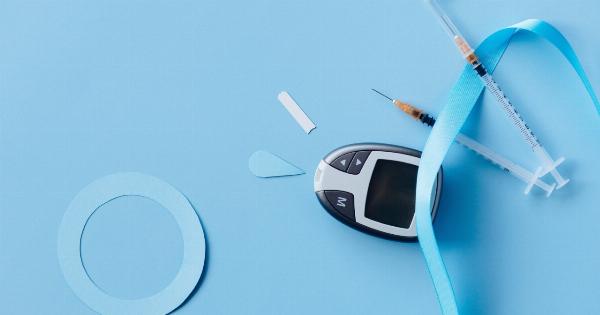Controlling glucose levels is essential for people with diabetes to maintain their health. One way to manage glucose levels is to use low-calorie sweeteners, which have become increasingly popular in recent years.
The International Sweetember Association is an organization that promotes the use of low-calorie sweeteners and works to educate people around the world on their benefits.
What are low-calorie sweeteners?
Low-calorie sweeteners are sugar substitutes that provide sweetness without the calories of sugar. There are several types of low-calorie sweeteners, including:.
- Stevia
- Aspartame
- Sucralose
- Saccharin
These sweeteners are often used in diet sodas, sugar-free desserts, and other low-calorie food and beverage products.
Why are low-calorie sweeteners beneficial for people with diabetes?
Low-calorie sweeteners can be a useful tool for people with diabetes who need to manage their glucose levels. Unlike sugar, which can cause spikes in blood glucose levels, low-calorie sweeteners do not cause significant changes in blood glucose levels.
Additionally, using low-calorie sweeteners can help people with diabetes reduce their calorie intake and maintain a healthy weight, which is important for managing diabetes.
What is the International Sweetember Association?
The International Sweetember Association is a non-profit organization that promotes the use of low-calorie sweeteners worldwide.
The association brings together industry leaders, healthcare professionals, and other stakeholders to advance the science and public understanding of low-calorie sweeteners. The goals of the International Sweetember Association include:.
- Advocating for the use of low-calorie sweeteners as a safe and effective alternative to sugar.
- Encouraging research on low-calorie sweeteners and their potential health benefits.
- Providing education and resources to healthcare professionals, policymakers, and the public.
What are the benefits of joining the International Sweetember Association?
Joining the International Sweetember Association can provide several benefits for healthcare professionals and other stakeholders. Some of these benefits include:.
- Access to the latest research and information on low-calorie sweeteners.
- Opportunities to network with other experts in the field.
- Access to resources and tools for educating patients or clients about low-calorie sweeteners.
- The ability to influence policy decisions related to low-calorie sweeteners.
- The satisfaction of contributing to a cause that promotes public health.
How can healthcare professionals incorporate low-calorie sweeteners into their practice?
Healthcare professionals can play an important role in educating their patients about the benefits of low-calorie sweeteners. Some ways healthcare professionals can incorporate low-calorie sweeteners into their practice include:.
- Providing resources and information to patients about low-calorie sweeteners.
- Encouraging patients to try low-calorie sweeteners as a sugar substitute.
- Discussing the potential weight management benefits of low-calorie sweeteners with patients who need to lose weight.
- Encouraging patients to limit their sugar intake by using low-calorie sweeteners in place of sugar in their foods and beverages.
Are there any potential risks or side effects of using low-calorie sweeteners?
Most low-calorie sweeteners are considered safe for consumption when used in moderation. However, some people may experience side effects or adverse reactions to certain types of sweeteners.
For example, some people may experience digestive issues or headaches after consuming foods or beverages sweetened with aspartame. It is important for individuals to monitor their own reactions to low-calorie sweeteners and consult with a healthcare provider if they have any concerns or questions.
Conclusion
The International Sweetember Association is an important organization that promotes the use of low-calorie sweeteners as a tool for managing glucose levels and maintaining a healthy weight.
Healthcare professionals can play an important role in educating their patients about the benefits of low-calorie sweeteners and incorporating them into their practice. While low-calorie sweeteners are generally considered safe for consumption, it is important for individuals to monitor their own reactions and consult with a healthcare provider if they have any concerns.






























